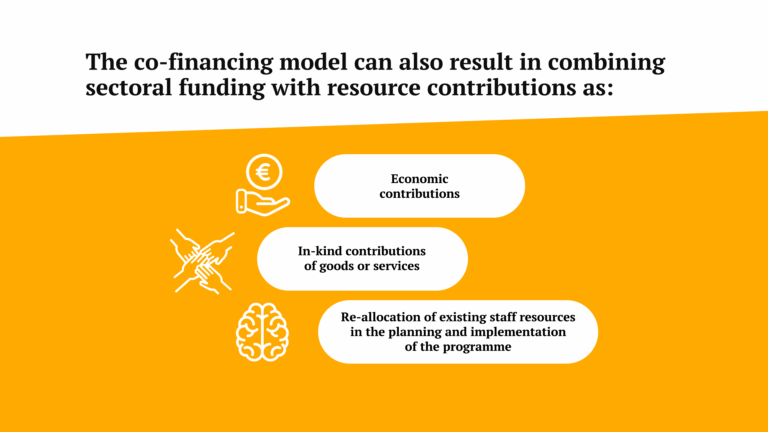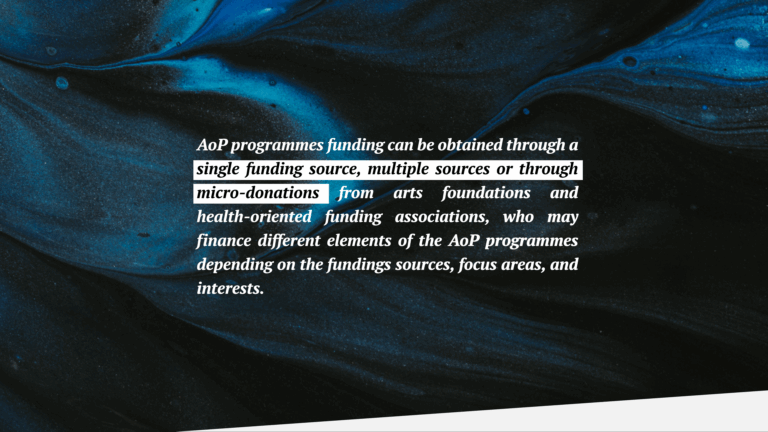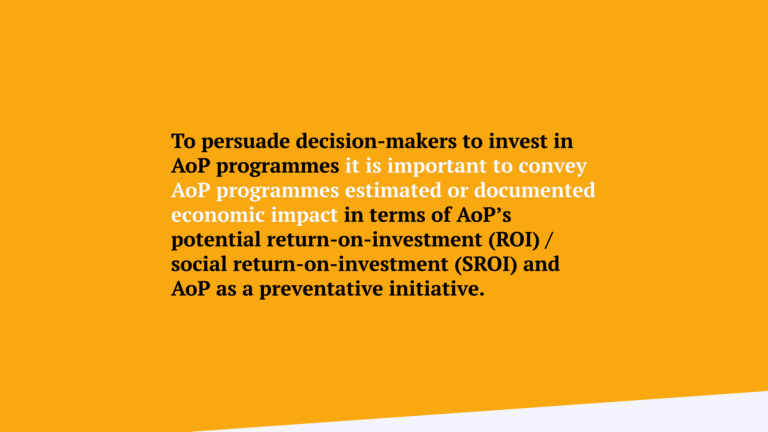As mentioned in Gaining a strategic overview the AoP programmes should support existing policies and strategies from various sectors, because they can enable or inhibit the planning and execution of the AoP programmes. Depending on existing and/or forthcoming policies and strategies, a co-financing model for AoP programmes could be a feasible opportunity for funding AoP programmes.
Also, other sectors besides the health and cultural sectors can contribute with financial, personal or in-kind resources. For instance, the civil society and private sector actors should be considered when planning and implementing local AoP programmes. In doing so, all parties have an interest, shared commitment and ownership in the quality, success, and sustainability of local AoP programmes.
The co-financing model can possibly combine sectoral funding with resource contributions as follows:
Currently, many of the Baltic Sea countries have not yet managed to establish long-term funding for AoP programmes. AoP in the Baltic Sea Region generic programme concept is particularly inspired by England, who have managed to establish long-term funding for social prescribing initiatives. The National Health Service (NHS) 2019 long-term plan for social prescribing allocates financial resources for a network of link workers across England who have a coordinating role in linking citizens to local AoP programmes.
However, the NHS financial model, does not provide financial support to expenses pertaining to the preparation and facilitation of activities. The generic AoP Baltic Sea Region programme concept is facilitated by professional artists and culture facilitators who together with the link worker, are equally important in delivering successful and sustainable AoP programme and therefore should be renumerated for their services.




